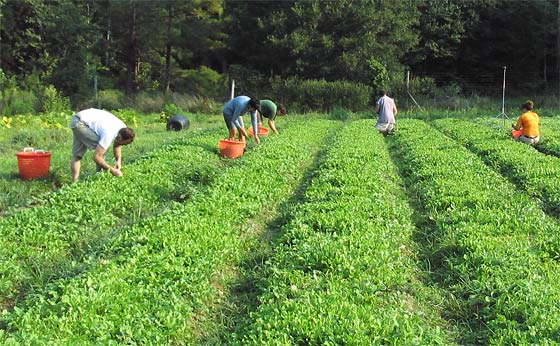Survival SKILLS – More Than Just Food And Water
The prepper’s of today will vary in their range of risk tolerance – from the casual prepper (high risk tolerance) to the extreme prepper (very low risk tolerance). Their preparations and preparedness will also vary corresponding to their risk tolerance and/or recognition of risk… and the things that they do for their overall plan will range widely.
Some will be satisfied with storing back weeks or months of food and having some practical supplies, while others won’t feel comfortable until they’ve achieved a 1-year food storage along with a serious store of supplies.
The thing is though, there’s more to it than just storing food and water (and supplies)…
Logic tells us that most of the (dare I say, ‘typical’?) higher probability disasters will be less devastating over the long run, and will mostly be fairly short in duration (and localized) than other disasters which while less likely… may be more severe, wide-spread and much more impacting on one’s survival.
When it comes to survival itself, if you are unfortunate enough to be caught in the bulls-eye of a localized disaster, you will have the hope (and probability) that others will be able to help, since the disaster will be somewhat localized. However a wider ranging catastrophic disaster, although usually less probable, will affect far more people who will be caught in it when it occurs.
While everyone’s preparedness situation is unique with the constraints of risk tolerance, insight, and budget and time constraints, I do believe that a very good course of action (regardless of your risk tolerance) is to identify your existing skills and think about how your skills could be put to work in a post-disaster scenario.
Focus some of your survival preparedness plans to support your skill sets.
If you find that after self-examination your skills are not practical enough to deal with survival and life after a disaster (you will have to define your own disaster scenarios), then you really need to look into learning some skills which will assist you (and others) while supporting survival after TSHTF.
Apart from the very basic necessities to survive (shelter, fire, water, food, security), assuming one has enough supplies to make it through a number of months from basic storage, the real long term survival will come from ones skills and ability to contribute to providing what you need to survive. Perhaps contributions to a self sustaining community, and/or barter services for consumables that are needed.
This really is not much different from what we do today (we work for currency), except it will be work at a more basic level, and one where perhaps paper currency will be worthless.
For example, those who know how to successfully grow food, and those who know how to leverage the tools around them to build and repair things, and those who know the basic down-to-earth know-how skills of survival… ALL will be in high demand after TSHTF.
Think ahead about leveraging the skills and know-how that you already have, in order to place yourself in a better position.
Not many (hardly any) people will truly posses all of the skills necessary to live self-sufficient. It will take a group, a tribe, a community of people with a range of skills and abilities in order to stand a chance at survival.
Do not fall into the trap of believing that if you simply buy enough survival preparedness supplies, that you will be all set. While having these supplies will definitely be a plus, the fact is that it will only get you so far… If the disaster is short enough and things recover, then that will have been okay. On the other hand, if the disaster is truly a SHTF, then those supplies will run out, and you will only be left with your skills.
Please consider investing some of your time learning some basic practical hands-on skills. It really is a life insurance policy.

